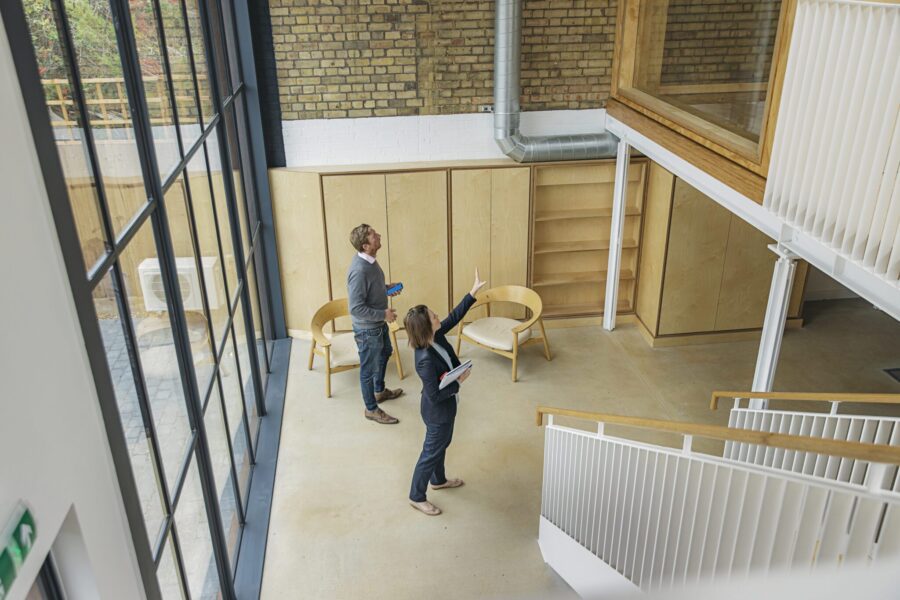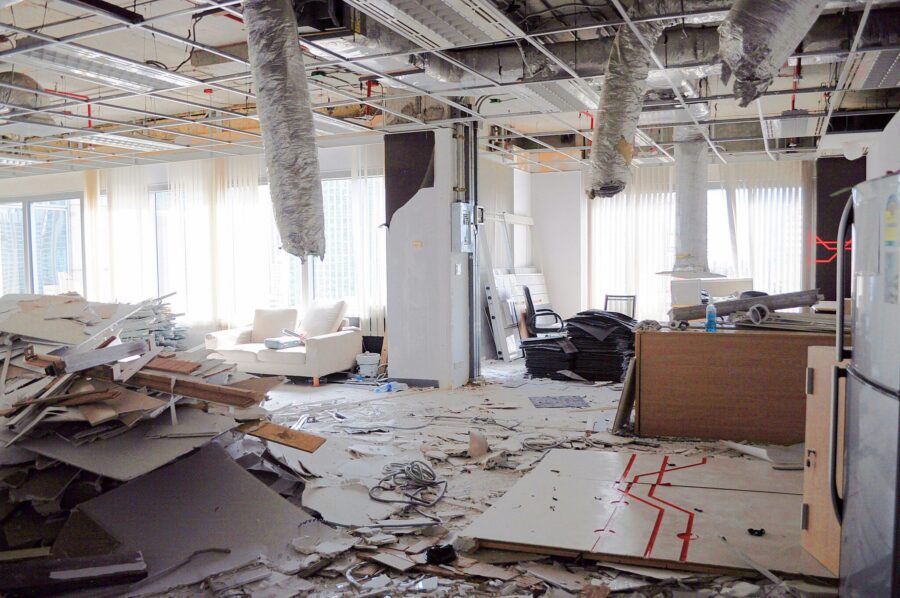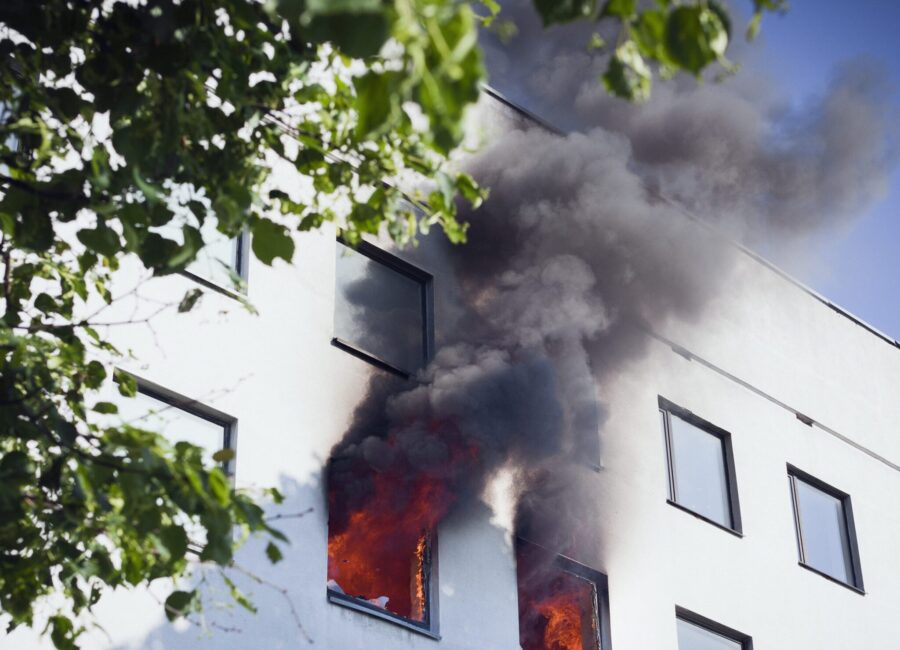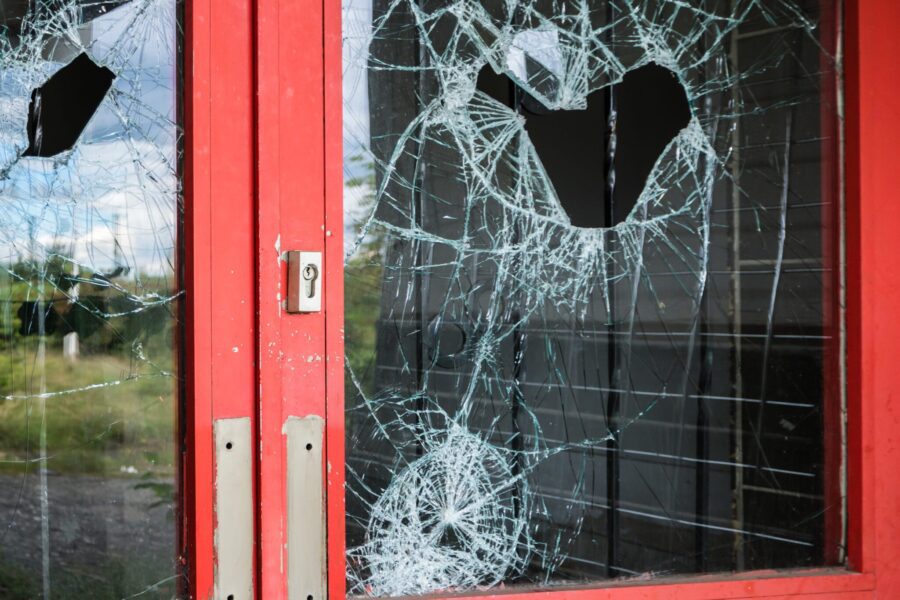There are no secrets to business success, other than hard work, learning from failure and being prepared to meet the next challenge. When you run a business, one essential requirement for being fully prepared is the financial protection provided by commercial property insurance.
With commercial property insurance, business owners have the peace of mind that goes along with knowing they are prepared to restore their workplace after a fire, to recover equipment after a storm or to replace inventory that was stolen.
Without commercial property insurance, the assets of the business – a building, furnishings, equipment and inventory – could be lost to a totally unexpected event.
In order to safeguard these assets, every business owner or manager needs to understand the fundamentals of commercial property insurance.
What is commercial property insurance?
Commercial property insurance, also known as business property insurance, provides financial protection to repair or replace physical assets or other business property that is damaged or destroyed by one of the named risks in the policy. These risks generally include fire, storm, explosion, water damage, theft and vandalism.
Who needs commercial property insurance?
If replacing damaged assets out-of-pocket would cause a problem for the funds of the business or the owner’s personal finances, then commercial property insurance should be considered indispensable.
Without the protection of a commercial property insurance policy, the owner would have limited resources to replace equipment damaged by a lightning strike or inventory ruined by a burst pipe. In the case of a devastating event, such as a building fire, the loss of valuable physical assets could even mean the end of the business.
Whether large or small, a business needs commercial property insurance if its business operations include any of the following features:
- Workspaces – Are business operations conducted in an office, store or workshop?
- Equipment – Does the business own or lease essential machines or tools?
- Inventory – Does the business have products or raw materials in the building?
Note that these features may also indicate the need for commercial property insurance to protect a home-based business, as most business risks and commercial assets are not covered by homeowners’ insurance.
What risks are covered?
Commercial property insurance can typically include financial protection for loss or damage due to fire, storm, explosions, burst pipes, theft and vandalism.
Commercial property insurance storm coverage typically includes lightning, wind, rain and hail. However, for businesses located in regions that are vulnerable to certain types of catastrophic storm damage, such as tornadoes or hurricanes, there will often be limitations, and special additional coverage may be required.
Likewise, the water damage provisions of a commercial property insurance policy generally do not include losses from flood damage caused by river rise, storm surge or flash flooding.
What does commercial property insurance cover?
Standard commercial property insurance coverage protects business assets and commercial property, including:
Building and Contents
- Office, store or shop structure
- Business furniture
- Computers and records
- Tools and equipment
Inventory
- Finished goods
- Raw materials
- Business supplies
Exterior Property (as scheduled on the policy)
- Signs and lighting
- Walkways and parking lots
- Fences and landscaping
What is not covered by commercial property insurance?
A loss or damage might not be covered by your general liability insurance policy when the loss is either specifically excluded from the covered risks or is more properly covered by some other type of insurance.
Vehicle Damage – If an employee has an accident while driving a company vehicle, coverage for this claim should be pursued with the company’s commercial auto insurance carrier.
Flood Damage – If days of rain caused the riverfront to flood the city, damaging the office, inventory, equipment and furnishings, this damage could only be covered by a separate flood insurance policy.
Earth Movement – If a workplace is damaged by certain natural disasters, such as an earthquake in California or a sinkhole in Florida, these events are commonly covered by a separate sinkhole or earthquake insurance policy.
Personal Property – Commercial property insurance covers the physical assets of the business, but not personal property.
Business Interruption – If a business is forced to close and loses revenue due to property damage, business interruption insurance can help with the costs of keeping your business financially afloat.
Negligence – If the owner has ignored termites or foundation leaks that cause damage to physical assets over time, the degree to which damage resulted from that negligence is not covered by commercial property insurance.
How much commercial property insurance does your business need?
To determine the appropriate amount of commercial property insurance coverage needed to help protect your business, it is crucial to conduct a thorough assessment of your commercial property to both determine the level of risk and to put a value on potential loss.
Property Value – Get professional estimates to establish the repair or replacement cost of workspaces, equipment, furniture, inventory and all other improvements. Do not forget about the recent dramatic increases in the cost of building materials, etc.
Age of the Equipment – New equipment usually has access to repair kits, spare parts and a network of service technicians who are qualified to put a damaged system back in operation. Old equipment can sometimes only be repaired through a search for rare parts and knowledgeable repair technicians.
Geographic Area – Hurricanes can strike anywhere from the Gulf Coast to the Eastern Seaboard. The west has both wildfires and earthquakes. Tornadoes visit the middle of America in the spring and summer. A commercial property insurance advisor can help you assess geographic risks using industry and government data.
Construction – Was the building constructed of brick, concrete or wood? The addition of vulnerable materials, such as wood floors or partitions, can reduce the fire rating of a commercial building, increasing the premium. Conversely, adding fire-resistant walls, floors and doors can improve the fire rating and decrease the insurance premium.
Replacement Value vs Cash Value
The business owner must also determine whether a commercial property insurance policy should protect business assets based on their cash value or their current replacement value.
Replacement value covers costs when a replacement is needed, with no deduction for depreciation, while actual cash value coverage pays only the depreciated value of the lost or damaged property. Accordingly, replacement value coverage costs more than cash value coverage.
How much does commercial property insurance cost?
The cost of all insurance is based on the level of risk. This risk can be influenced by geography, location, business operations and property value.
In addition, the cost of commercial property insurance coverage is influenced by the size of the business premises, the age of the building, the cost of equipment and furnishings and whether coverage is based on replacement or cash value.
How to Reduce the Risk of a Commercial Property Insurance Claim
While there is no way to prevent every risk, any business can take a sensible approach to risk management and involve all employees in a culture of workplace safety and risk mitigation. By reducing risks, a business can prevent losses and, in some cases, can earn reduced premiums. Consider the following:
Prevent Fires
Fire causes some of the most devastating business losses. Pay attention to fire safety inspections and correct any identified problems. Keep fire extinguishers charged and handy. Get rid of extraneous flammable material. Inspect wiring and lighting for problems. Train employees to prevent fires.
Prevent Water Damage
Water can come from above or below to cause water damage. Inspect the roof and pay attention to even the smallest leak. Make sure gutters and drains are working. Inspect plumbing, including sinks, toilets and any other water supplies. Make sure that sewer connections are in good order.
Perform Routine Maintenance
Another way to avoid some of the risks of fire and water damage is routine preventive maintenance. Keep HVAC filters clean and make sure that heating and cooling systems are working properly. Clean, maintain and lubricate shop equipment. Check fans to make sure the wiring is intact and the motors are not overheating. Check kitchens and bathrooms to ensure that sinks, floor drains and toilets are unobstructed. Get rid of paper records, cardboard boxes and other clutter that could create a fire hazard.
Prevent Theft
Install a security system. Video cameras outside can deter both theft and vandalism. Use lighting to protect building entries and areas where vehicles are parked. Trim trees and landscaping. Work with building or shopping center neighbors to coordinate security measures.
Commercial Property Insurance Underwriting
Insurance companies develop underwriting guidelines that are reviewed when deciding whether to offer commercial property insurance coverage to a particular business, as well as when deciding how much to charge. In addition to the building age, plumbing, wiring, roof and HVAC systems, the insurer will consider the location, occupancy and loss history of the applicant.
Work With an Insurance Professional
Navigating the complexities of commercial property insurance can be challenging, even for an experienced business professionals. Work with a trusted insurance advisor to help guide you through the process.
Stay Prepared to Manage the Risks
There is no guaranteed way to prevent fire, storm or the malicious damage wrought by theft or vandalism. But, commercial property insurance offers a way to stay prepared for whatever may come by helping to provide the resources needed to help the business rebuild and recover.
Commercial property insurance can make all the difference between having the financial protection to meet an unexpected challenge, or possibly losing a business that may have required many years of hard work and investment to build.
As the business owner or manager, you know the value of your business property, and you have the necessary experience to evaluate its risks. Combine that knowledge with the expertise of a trusted commercial property insurance advisor to help protect your business for years to come.









